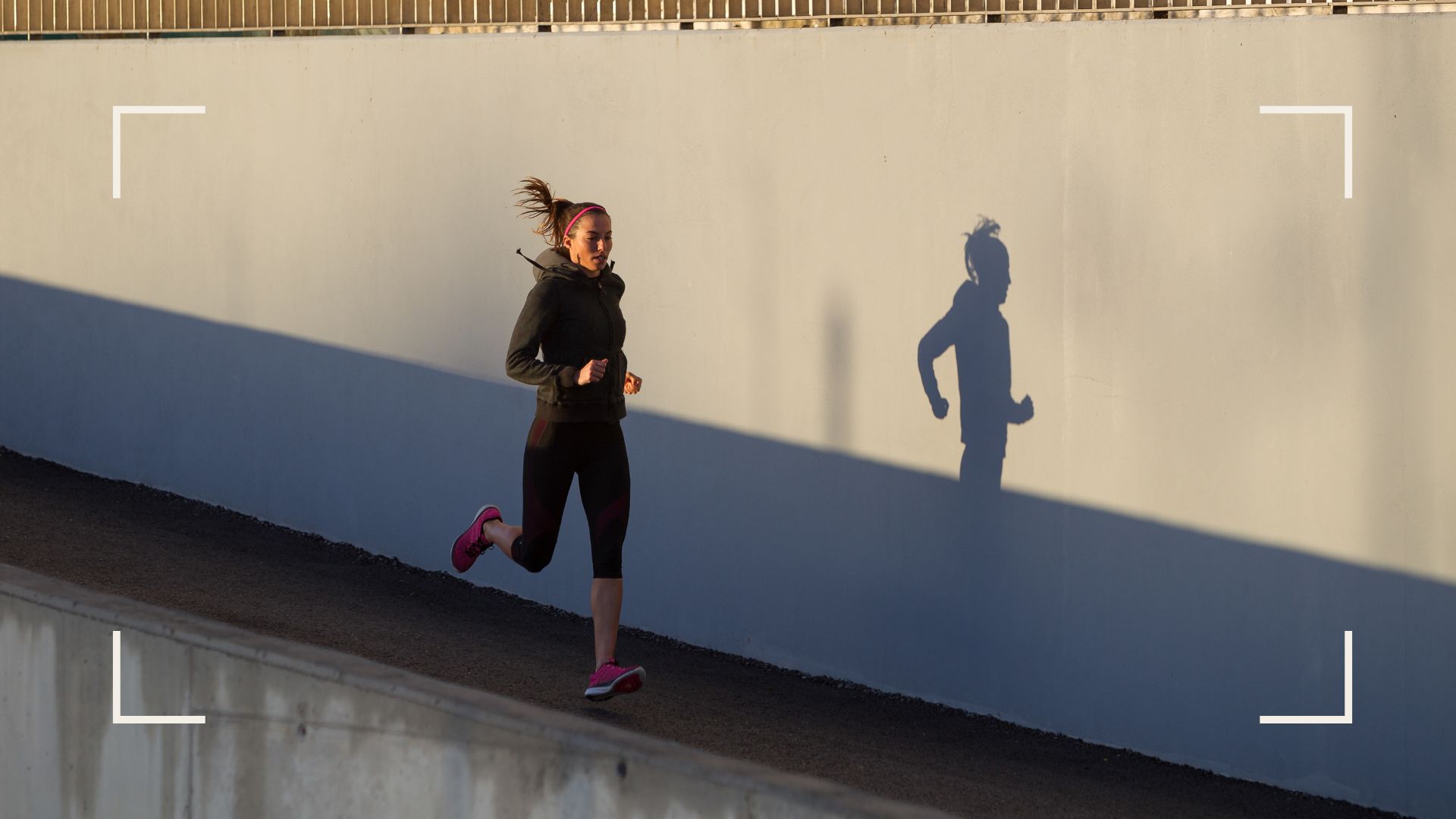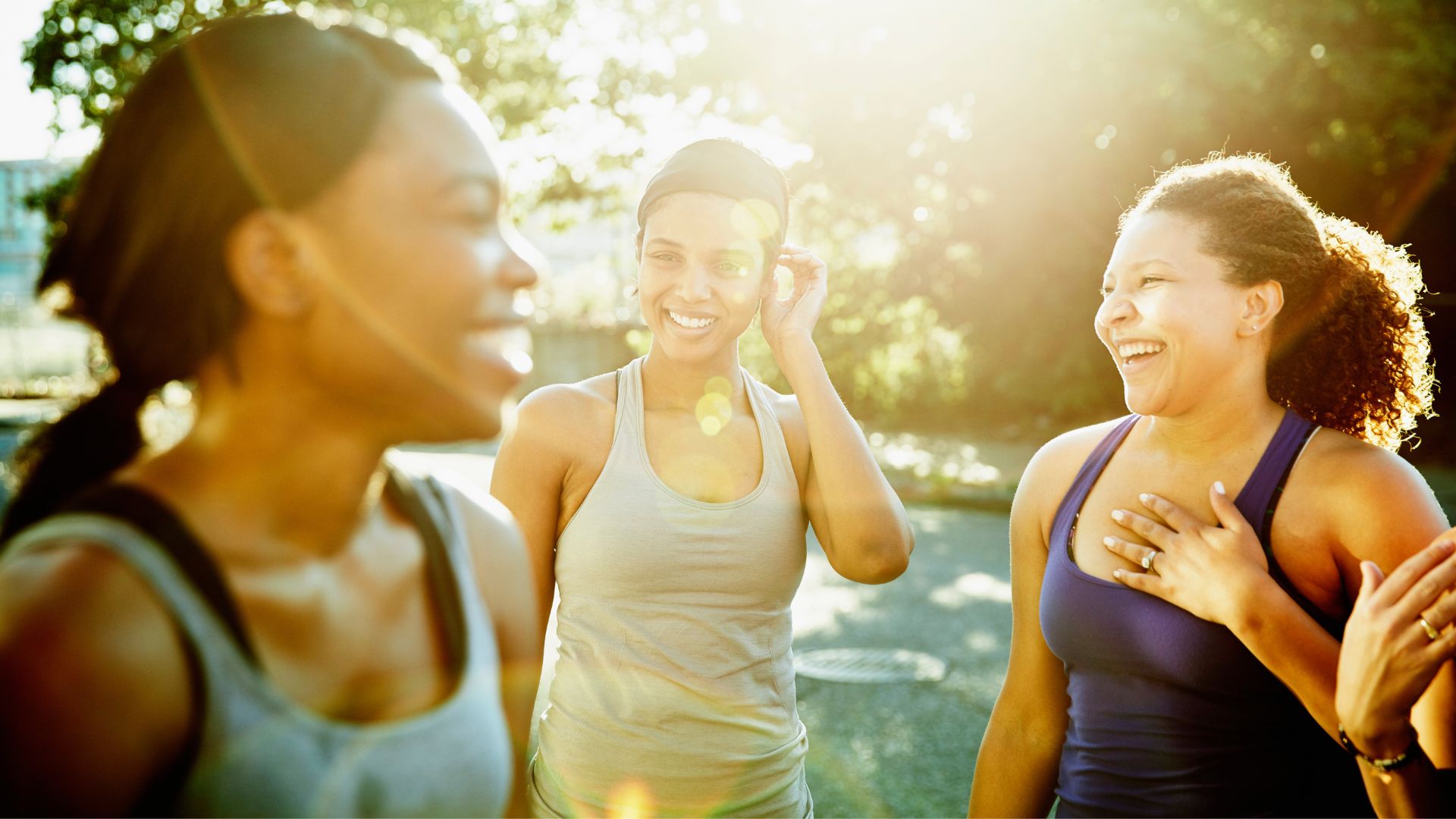New study reveals the best time to exercise based on your health goals - but this is what a personal trainer really thinks
If you're wondering about the best time to exercise to lose weight, this is what a personal trainer wants you to know


Looking for the best time to exercise? Whether you want to lose weight, get fitter and reduce your blood pressure, or build muscle, several studies over the years have suggested that working out in the morning or evening will have an impact on how quickly and effectively you can achieve these goals.
For example, a new study by Skidmore College, published in Frontiers, reviewed 140 women who exercised regularly over 12 weeks, looking at their levels of strength, endurance, power, body composition, fat mass, abdominal fat, blood pressure, and mood state, among other factors - including diet. The researchers discovered that women who exercised in the morning had reduced levels of abdominal fat and lower blood pressure, while those who worked out in the evening were found to have increased muscular performance.
It's an interesting finding for anyone looking to learn how to lose belly fat, reduce their blood pressure, or want to try something new with one of the top fitness trends 2023, but is it really the reality outside of a research setting? This is what a personal trainer wants you to know about choosing the best time to exercise for you.
When is the best time to exercise?
Despite what the research suggests, there's no real optimum time to work out. "The reality for the overwhelming majority of us is that the best time to exercise is not a specific golden hour in the day that everyone should stick to. The ideal time is when it's right to do so for you as an individual," explains Aroosha Nekonam, a certified personal trainer at Ultimate Performance.
Instead, she adds, what people should focus on is training when they want to, when they feel at their best, and when they can consistently do it day in and day out, and give it their all.
So, where did the study's findings come from? Research cited in the study from the University of Lisbon suggests overnight fasting as the most likely reason. It explains that intermittent fasting overnight may force the body to adapt and use adipose tissue - otherwise known as body fat - rather than carbohydrates for energy.
For changes in muscular performance, the study points to other research by the University of Sfax that suggests an increased core temperature, muscle metabolism, and changes in muscle-building enzyme levels - like creatine kinase - are responsible for the change in performance.
Sign up to our free daily email for the latest royal and entertainment news, interesting opinion, expert advice on styling and beauty trends, and no-nonsense guides to the health and wellness questions you want answered.
But as the personal trainer and weight loss specialist reminds us, "Everything is subjective. You can't be beholden to studies that falsely promote some sort of magic time to train. It's all about you. And for most people, the difference between working out in the morning or the evening is going to be so insignificant that it won't make a lot of difference to losing fat [or any other health goal you have]."
With this in mind, however, there are some real benefits of exercising at certain times of the day for some people and these shouldn't be undervalued. However, they are nothing to do with the physical effect of exercise on the body.

Benefits of exercising in the morning
- Better sleep: "Getting up earlier it forces you to go to bed earlier and getting to bed earlier and sleeping better will mean you recover better," says Nekonam. "Your stress hormones will be lower, your pain tolerance will be higher, your immune system will function better, and you will be better able to regulate your appetite."
- Less likely to skip the workout: "Exercising first thing in the morning before you do anything else will mean you're less likely to skip the workout," she says. "Later in the day, your schedule might take over or you might be tired or demotivated after work."
- More likely to train harder: "You have to get your workout done before you get ready for work or your day, so you'll train with more vigor and intensity to get through the workout and get it done. Chances are you will train a little bit harder or with a little more intensity which will likely help improve results."
- A great way to start the day: "Generally, if you get up early and the first positive thing you do in the day is training, you feel good, you get endorphins, you get the blood pumping around your body and brain. That’s going to mean you go to work and you do things more productively, you feel better, your stress hormones go down and it all creates a positive feedback loop that improves all aspects of your health," she says.
- More time in the evening: The evenings are an ideal time to catch up with friends or family, tick off a to-do list of so-called 'life admin', or relax in front of the television. It's unlikely you'd be able to do half of these activities in the morning as most people will be asleep, making it the perfect time to get your daily dose of exercise out of the way.
Benefits of exercising in the evening
- Evening workouts may be easier to fit into your lifestyle: Ultimately, as Nekonam says, "Everyone has a different lifestyle and different demands on their daily schedule. If you’re roped into training at a time you don’t want to because it’s been recommended by a study based on other people, then you won’t get the most out of that session because it won’t work for your lifestyle."
- Better suited to night owls: The concept of being a night owl, i.e. functioning better during the later hours of the day, versus an early bird, is very real according to research by the University of Exeter Medical School. Some people will be able to work harder and train better in the later hours of the day so an evening workout will be better suited to them.
- Better sleep: Equally as going to bed earlier will encourage better sleep, getting up later could also help those who work in the evenings or overnight get more sleep and plan the best time to sleep and wake up. "Having a good seven to eight hours before a workout will be far better than four to five hours sleep, which can leave you feeling tired, sluggish, and not get the most out of your session," the personal trainer explains.
- Gyms tend to be less crowded: If you've ever attempted to go to the gym pre-9 am or around 5 pm, then you'll know that this is the peak workout time. If you exercise in a gym, working out later in the evening could mean you get your pick of the machines as most people exercise in the morning or between 5 pm and 7 pm in the evening.
Is there a best time to exercise for weight loss?
As the personal trainer and weight loss specialist says, there's no ideal time to exercise - even for weight loss. However, as you're more likely to be training without having eaten if you exercise in the morning, you may be able to reap the benefits of fasted training. Several studies have pointed out that, from the point of view of body fat, fasted training increases hormone-sensitive lipase. "This is an enzyme that helps to break down fat to be used as energy by your body. Training fasted in the morning can potentially increase the amount of the enzyme in your body over time, which may help you get leaner faster and keep fat off more effectively," says Nekonam.
If you want to lose weight, you'll need to make sure your eating habits match your workout habits. You can exercise at 5 am or 11 pm but if you're not in a calorie deficit then you'll struggle to lose weight at all and could end up dieting but not losing weight.
As the personal trainer warns, "Training without food doesn't magically burn more calories than training after eating."

Grace Walsh is woman&home's Health Channel Editor, working across the areas of fitness, nutrition, sleep, mental health, relationships, and sex. She is also a qualified fitness instructor. In 2025, she will be taking on her third marathon in Brighton, completing her first ultra marathon, and qualifying as a certified personal trainer and nutrition coach.
A digital journalist with over seven years experience as a writer and editor for UK publications, Grace has covered (almost) everything in the world of health and wellbeing with bylines in Cosmopolitan, Red, The i Paper, GoodtoKnow, and more.